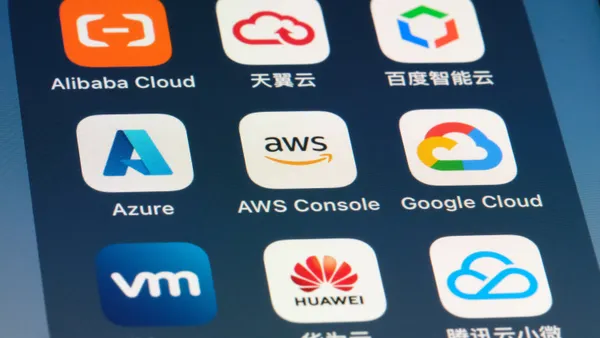Dive Brief:
-
Employers say they're likely to increase spending on security tools and software, computer hardware and equipment, and internet hardware for their employees in the next year, according to a survey from Plugable released Wednesday. The company surveyed 2,000 U.S. business owners, CEOs and C-suite members.
-
Businesses estimate they've spent an average of $400 per employee on workstations, according to the survey. Laptops, monitors and peripherals such as keyboards and computer mice top the list of items employers provided in the last year.
-
At least in part, employers feel pressured to improve the employee experience due to talent market demands. For 87% of employers, the pressure to retain and attract workers is rising as other employers begin offering more flexibility or fully remote positions.
Dive Insight:
The success of hybrid work deployments hinges on employees' abilities to stay connected at home, with an at-home work experience that equals what they have in the office.
Employer concerns over workspace experience equality at home versus the office are valid but not new, said Tasha Liniger, chief human resources officer at Dialpad, in an email. "Progressive, forward-thinking companies are committing to a hybrid work model and investing in the proper tools," in order to lead in a hybrid workforce.
Over half of employers feel they've equipped workers with enough technical resources for work from home in the past year. Six in 10 say employees have a workspace well-suited for productivity.
Early in the shift toward widespread remote work, access to equipment was a top concern as hardware demands increased. Longer term, steady at-home connectivity became another obstacle.
A lack of visibility into employee's at-home networks meant connectivity became a hurdle, Irvin Bishop Jr., CIO at engineering and construction firm Black & Veatch, previously told CIO Dive. The company's IT department assembled a specialist team to help workers navigate any connectivity issues and remain operative.
The pressure to support workers through their tech issues also led to overworked, burned out IT workers. Most technology workers say their stress levels have risen since remote work began.
To lower the physical friction of "anywhere" tech support, IT departments can move to cloud-based unified endpoint management solutions and enable remote access capabilities, according to a report presented at the Gartner Digital Workplace Summit last month.
Organizations looking to adapt to hybrid work in the long term need to assess where technology fits into company culture, and how it can support it.
"For many organizations, upholding the employee experience has been more challenging under a hybrid environment because our workplace cultures are still playing catch-up to the concept," said Mike Hicks, CMO at Beezy, in an email.
"We need to simplify the interaction with the digital workplace tools our employees use so they can spend less time thinking about what to use, and more time engaging in meaningful conversations with colleagues on things that matter to the business," said Hicks.














